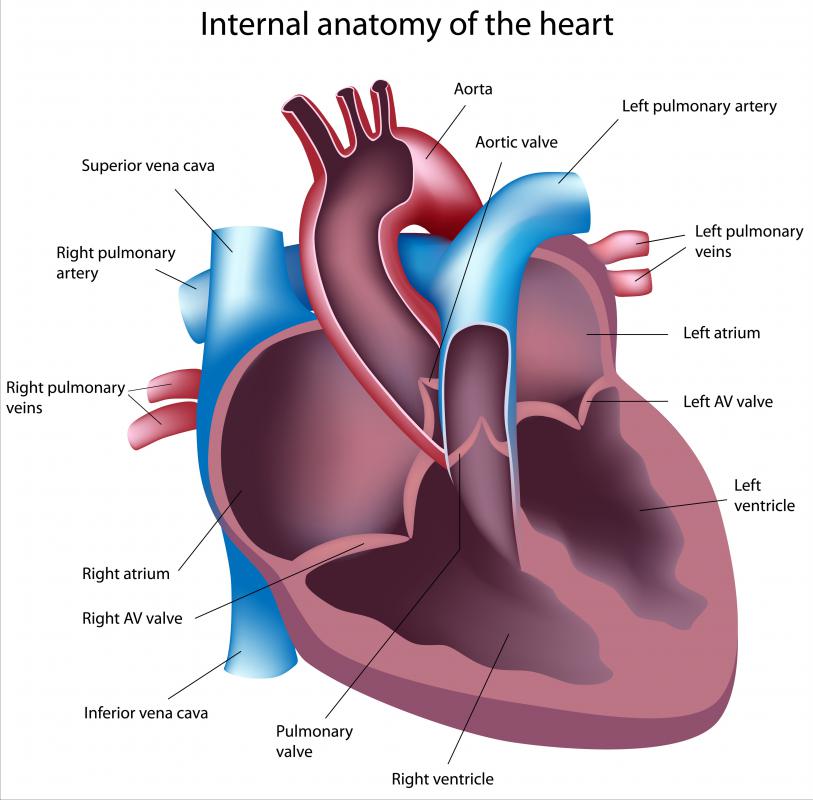At WiseGEEK, we're committed to delivering accurate, trustworthy information. Our expert-authored content is rigorously fact-checked and sourced from credible authorities. Discover how we uphold the highest standards in providing you with reliable knowledge.
What Is the Connection between Palpitations and Tachycardia?
Tachychardia is one of the primary causes of palpitations. When the heart beats at an abnormally rapid pace, tachycardia results. This can cause abnormal body sensations called palpitations. Both palpitations and tachycardia generally originate from cardiac arrhythmia. When palpitations are linked to tachycardia, treatment protocols for the tachycardia will usually alleviate the palpitations.
The typical chain of events for tachycardia-related heart palpitations begins with arrhythmia, which is perhaps best described as electrical misfires in the heart. When this effect occurs, heart rate may slow or accelerate. The latter case constitutes tachycardia. The rapid heartbeat then causes a pounding or pulsing sensation in the body, particularly at pulse points. These physical sensations characterize palpitations.

Several underlying conditions may cause palpitations and tachycardia. Heart disease and heart failure are major culprits behind many cases of tachycardia. Risk factors for developing these particular conditions might include high cholesterol levels and genetic susceptibility. Further, a heart deformity like a faulty heart valve might create abnormal heart rhythms. Similarly, low levels of potassium and other electrolyte influences can damage the heart.

Different types of tachycardia may cause palpitations. A typically less severe cause of palpitations and tachycardia arises from heart atrium issues. Specifically, supraventricular tachycardia impacts the young and the healthy. This tachycardia may occur frequently and for prolonged periods of time.
A more serious form of tachycardia directly affects the ventricle chamber of the heart. Ventricular tachycardia generally strikes older populations with preexisting cardiac issues. This condition can cause severe loss of awareness verging on or including unconsciousness. Certain symptoms may raise the seriousness level for palpitations and tachycardia of this type. Accompanying dizziness or faintness can serve as primary warning signs.

In order to determine the likelihood of palpitations and tachycardia, individuals should become familiar with their normal heart rates. Experts estimate an average adult heart rate beats at anywhere from 60 to 100 beats per minute. If an individual’s heart rate exceeds normal pulse levels — particularly if the number is significantly above 100 beats per minute — palpitations are likely. If palpitations occur frequently, an underlying arrhythmia issue like tachycardia could be present.

Although connections are commonplace, palpitations and tachycardia are not always linked. For one, other types of arrhythmia can also cause palpitations. Sometimes, the palpitation source is not even heart-related, such as when low blood sugar levels, thyroid gland issues, or anxiety are to blame.
Treating palpitations usually requires treating the tachycardia arrhythmia. As such, drugs called antiarrhythmics are often prescribed. Pacemakers or other devices that provide electrical shocks to the heart could be needed in some cases as well.
AS FEATURED ON:
AS FEATURED ON:


















Discuss this Article
Post your comments